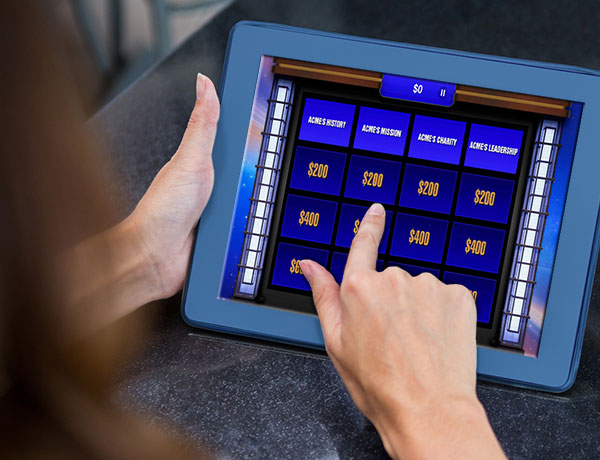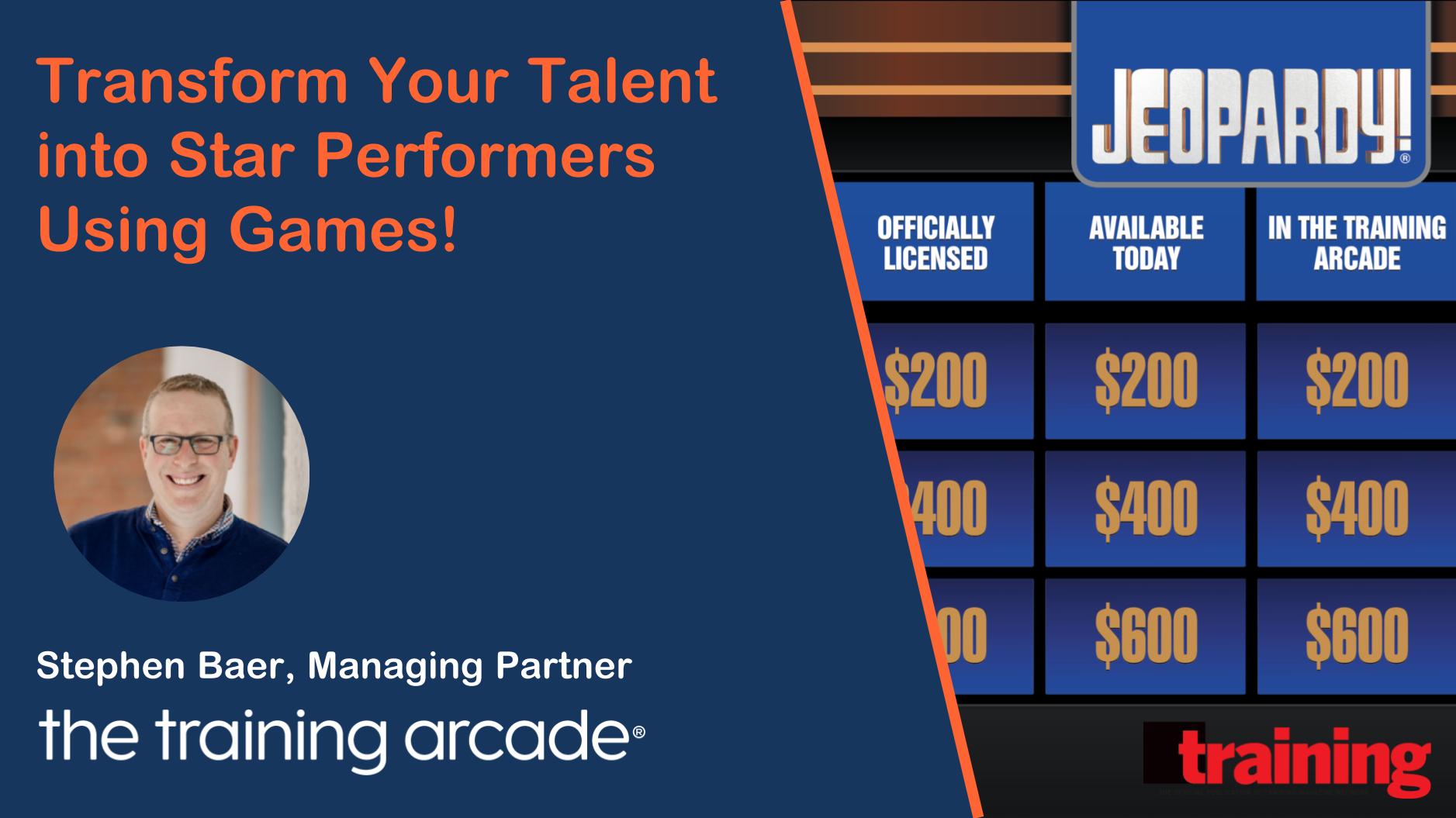We created a webinar with The Training Magazine titled: “Transform Your Talent into Star Performers Using Training Games.” Harry Friedman, Executive Producer of Jeopardy! spoke about the importance of the 36-year history and success of the brand. He also talks about our partnership with Sony Productions and why Jeopardy!® is such a perfect game for training and education. Michael Sidebottom and James Pappas, Learning and Development executives at Comcast University discuss how they use games to train their teams. They talk about the importance of using 3 different types of training: Instructor-Led, Self-Directed and Leader-Led. Christina Lorenzo, Senior Instructional Designer of CHEST (American College of Chest Physicians) demonstrates why games are a perfect tool to train busy and often burn-out physicians. She also reviews a branching path game she created with us called Dr. Neb about Chronic Obstructive Pulmonary Disease (COPD). This game was created using The Training Arcade® Scenarios mechanic and enhanced by comic-book style illustrations. She also discusses her best practices in training soft skills. The recording can be found here. Below is a summary of the webinar:
Why Games?
So the first question we often get asked is why use games for training? Simply, employees are distracted, not stimulated and crave feedback
Games engage people, increases attention, sustain focus and drives improvement. With our DIY game authoring tool, The Training Arcade®, anyone can build games with their own learning content in minutes, drive fun and engagement, track knowledge retention, and encourage friendly competition. Games provide a venue to engage learners on a much deeper level and turn their training from a passive experience to a much more active experience.
Game-Based Training vs. Gamification
Game-based training provides a controlled environment where learners test their knowledge and practice behaviors to achieve a specific goal. Gamification provides goals and challenges, progress, points, badges and leaderboards.
Jeopardy!®
Jeopardy!, known as America’s favorite quiz show has been on the air for over 36 years. Harry has produced over 9000 episodes. The benefits of using Jeopardy! for training, he explains, is that it’s a game mechanic that just about everyone knows. It’s the perfect game to introduce into your training if you have team members who are a bit afraid of using new technology. For corporate training, Jeopardy not only reinforces the content, but it also tests the learner’s ability to recall the information. The Jeopardy! game in The Training Arcade® provides a robust analytics dashboard so you can analyze learner’s behavior.
Comcast
Comcast, a Fortune 50 company, established the Comcast University, a centralized L&D department of about 500 people whose mission is to develop the most talented and engaged workforce. They have to be extremely agile to adapt to the fast pace of technology. Their goal is to simplify the training and make it easy and digital. Michael Sidebottom, Program Manager, Learning and Development says “We chose to partner with The Training Arcade® because the platform is super easy to use; you get multiple game types and an intuitive interface.” He talks about how he uses a game at the beginning of each training session to review the materials from the day before. His learners insist on it! James Pappas, Program Manager, Learning and Development, has been using the Jump and Match game mechanic in The Training Arcade®. They say that the games also foster that competitive spirit that drives engagement. James Pappas talks about how the games have been very well received. The game-based training is increasing knowledge retention and they want more. He says, “We keep hearing, ‘when’s the next game?’”
CHEST (American College of Chest Physicians)
Christina Lorenzo, Senior Instructional Designer explains that CHEST is a sub-specialty medical society that focuses on 3 branches of medicine: pulmonary, sleep and critical care. They are a community and place for physicians to stay up to date on the newest techniques and research.
She explains why games work for her community; CHEST learners have complex patients with lots of electronic charts to study and they often work long hours and are frequently on call. They are high performers but have a short attention span and not much time for learning. Christina creates microgames with The Training Arcade that can be deployed on mobile or tablets so that these busy doctors can learn on the go. Game-based training is not only fun, but it also provides an escape from reality and a chance to practice in a safe place, to fail and to learn. Physicians like that these games are bite-sized and they really enjoy the competitive aspect of the gameplay.
Click here to download a pdf of the deck. Watch a recording of the webinar here.



